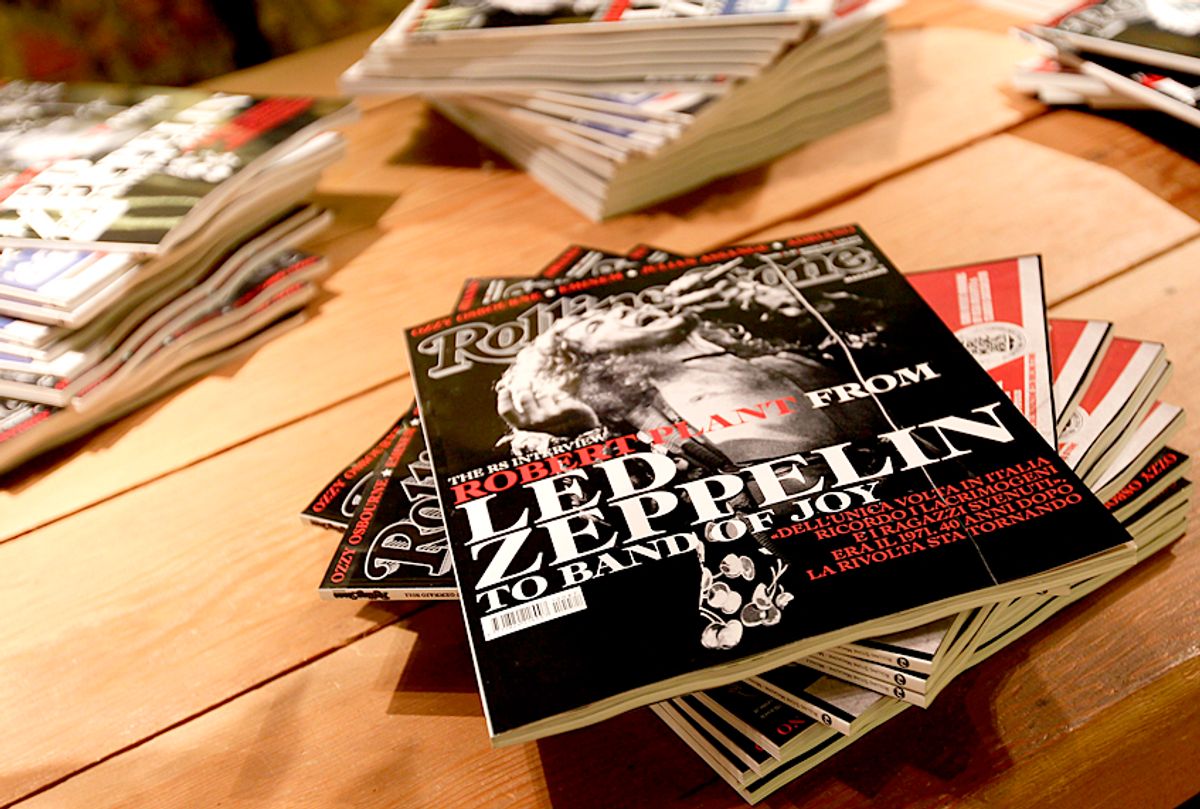Rolling Stone — the 50-year-old magazine that helped report on and create generations of popular culture — is up for sale. While the magazine and its web portal will continue to publish, founder and longtime leading editor Jann Wenner is selling his controlling interest in the title, according to The New York Times, potentially bringing to an end a rare five decades of independent status.
Already, Wenner Media, the publishing group behind Rolling Stone, has sold off other assets, including Men's Journal and the entertainment publication Us Weekly. As the Times reported, the push for company streamlining and the upcoming sale has been led by Gus Wenner, Jann's 27-year-old son, who currently runs day-to-day operations at Rolling Stone. BandLab Technologies — a Singapore music-technology firm — purchased a 49 percent share in the company in 2016.
The sale comes after several years of declining sales and bad headlines for the title that not only reported on the music, films and cultural movements of three generations, but transformed modern journalism on political and social issues as well.
A factually compromised 2014 feature on an alleged rape purportedly committed by members of a fraternity at the University of Virginia cost the magazine not only journalistic esteem, but a reported $3 million in damages. The magazine also collected criticism for a cover image that seemed to overly humanize Boston Marathon Bomber Dzhokhar Tsarnaev in 2013. Other, similar issues have sparked conversation in media circles.
In general, the late tenure of Mr. Wenner and the rising influence of the younger Wenner has been pockmarked by whispered accusations of general mismanagement and rising questions of the title's ongoing relevance. Rolling Stone's cultural subject matter often looked backward toward its own boomer glory days, a tendency that often caused its up-to-date coverage of more modern music and entertainment to seem out of place (though its straight-news reporting remains fresh).
It is hard to pin Rolling Stone's troubles and its move toward sale on one aspect of the magazine or one person on its staff. Overall, print subscriptions and the revenues from print advertising across the industry have declined, and income from digital publishing has not risen to meet the deficit.
In response, titles continue to shutter, staffs continue to lose members, budgets continue to shrink and ownership of stories brands continue to change hands. The recent news that music-focused fashion title Nylon would be shuttering its print edition to focus solely on web content is just one example of the extreme pivots those in publishing are currently making.
In just the last month, we have seen the retirement — often through semi-forced buyouts — of several highly regarded, highly paid editors. Vanity Fair's Graydon Carter, Elle's Robbie Myers, Glamor's Cindi Leive and Time's Nancy Gibbs are among the most notable. Now Wenner may join that list of departing celebrity editors. Among that clique, only Playboy's Hugh Hefner (who has left day-to-day operations at the company) and Vogue's Anna Wintour (always plagued by retirement rumors) remain as true titans.
Gus Wenner acknowledged the changing state of the market when he told the Times, "Publishing is a completely different industry than what it was." He continued, "The trends go in one direction, and we are very aware of that."
While it is unclear whether internal mismanagement, topical and cultural irrelevance or the landscape of the industry has put what was once the countercultural bible of America in this corner, but it is clear it will not be able to fight its way out without help.
The younger Wenner seemed to admit as such. "There’s a level of ambition that we can’t achieve alone," he told the Times, "so we are being proactive and want to get ahead of the curve."
But as much as he may want to get ahead of it, Rolling Stone has been behind the curve for quite some time.



Shares